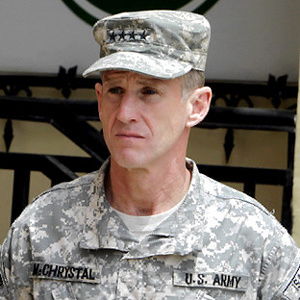McChrystal’s Dismissal: Harbinger of a New Afghanistan Strategy

Two. Barack Obama’s shifting the focus of the war against terrorism from Iraq to Afghanistan was inspired by the Pentagon’s demands, rather than an honest determination to root out terrorism. Nevertheless, signals point to Barack Obama’s intention to attenuate Pentagon’s influence in Afghan affairs.
General Stanley McChrystal’s dismissal is only the first step. Ostensibly, the reason for giving him the sack (after his bitter remarks reagrding top U.S. civilian officials engaged in the war in Afghanistan were published in the Rolling Stone magazine) was his insubordination. Underneath, however, it marked a difference between American politicians and the military over Afghanistan. The politicians feel that it is time take the issue into their own hands.
Three. Through the ‘surge’ policy they introduced in Afghanistan, politicians in Washington tried to meet the demands of the military. But as time passes by, a continuation of the current policies is taking the United States toward a total failure in Afghanistan, so it is time to change course in this war-ridden country, they argue. The Pentagon’s influence in Afghanistan will be curbed in the new setting.
Four. Is there any need to be reminded that the AfPak strategy adopted by Barack Obama has proved ineffective? Initially, on the verge of the Afpak implementation, Washington was so (over-) confident about its success that intended to include India in the policy package. Richard Holbrooke would be called Barack Obama’s Special Representative for Afghanistan, Pakistan and India—if U.S. could persuade New Delhi. Their response, however, was strong enough to discourage the Americans. Even Pakistan is not content being in the same policy package with Afghanistan. All in all, last year’s record proves that the AfPak strategy has not come close to meeting expectations. After the passage of a few years, what stays in the memory as the key feature of the strategy is Washington’s sinuous behavior toward Pakistan—from a troublesome ally (before the strategy was actually adopted), to a useful partner.
Five. An incessant insurgency threatens the U.S.’ situation in Afghanistan. The biggest threat could be a transition from insurgence to resistance, correctly addressed by Afghanistan’s President Hamed Karzai a few months ago. Americans may facilitate the disquieting transformation if they follow current policies. It seems that in Washington, some statesmen have grasped the danger.
Mohammad Ebrahim Taherian is Iran’s former ambassador to Pakistan.

